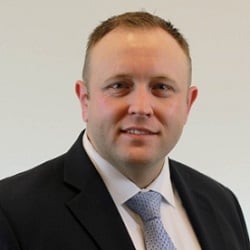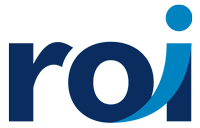
James Layton, PMP
Cerner Certified Revenue Cycle Client Services Executive
Over the past 11 years, James has driven efficiency and excellence within Revenue Cycle operations in healthcare. He is Six Sigma Yellow Belt Certified and has demonstrated mastery as a project leader within many complex engagements. James’ passion within healthcare IT spans project management, IT systems, Revenue Cycle consulting, and engagement leadership. In efforts to prove continued dedication to his profession, he obtained a CRCP, Patient Accounting from Cerner’s Revenue Cycle Certification Program last September, 2018.
Expert skills: EC2000, RelayAssurance+, Allscripts Paragon Financials, RelayClearance including Estimator, and ANSI standards formats
1. How long have you been in project management?
5 Years
2. Have you always worked in the healthcare sector? If not, where did you begin?
Yes, by choice. There is something unique about working in an industry that truly makes an impact globally and that shares best practices across organizations like HIMSS, CHIME, and other entities.
3. Do you believe healthcare project management is different from non-healthcare? If so, why/ how is it different?
Yes. In healthcare, we are not building widgets. A project can impact patient health and safety. There are other industries which can also impact people’s lives, but none so directly as hospital projects.
4. Reflect on your 1st project experience. How has it influenced the way you’ve managed projects since?
What I learned from my first project is to expect resistance. I try to factor this into projects from the outset moving forward. You are collaborating with various personalities and egos. A good project manager can play to the strengths of those personalities and drive success.
5. Consider the stakeholders impacted by the projects you are leading (E.g. executive leadership, IT, clinical staff, multidisciplinary teams, finance, other staff, patients, families, community, etc.). How do you ensure stakeholder satisfaction?
Communication, communication, communication! This is vital. When you keep your stakeholders in the know, they are more at ease. More importantly, if there is a set- back, accurate and clear communication is even more imperative.
6. How do you help your team prioritize competing or simultaneously urgent tasks? Whether internal or external?
When it comes to healthcare project management, patient safety is ALWAYS top priority. We move on from there. For the next level of priority after patient safety, this is where stakeholder input is instrumental in driving the priority of tasks. The stakeholders can typically decipher what tasks are critical either internal or external. The way I project manage is to not go from fire to fire with a hose, you evaluate the urgent tasks and tackle to resolution or to a satisfactory point prior to moving the teams focus to the next task.
Here is a revenue cycle example: Imagine if you have 300 recurring edits on claims. All are important and but not EQUAL in importance. You set the prioritization of the edits impacting revenue the hardest and focus on them first.
7. How do you approach project recovery when you hit a roadblock or when your project goes awry?
Step back and refocus on the project goal. Gather input from the team, realign, seek out work-arounds and proceed. The important thing is to not get hung up on the problem.
I say to myself, “Ok, this thing happened… or we are not getting traction. Good. Let’s do it a different way than we probably have not thought of during project planning or risk assessment.”
8. What do you think is a key characteristic of a great project manager?
Organization. If an executive asks you for minutes from a meeting 3 weeks ago when we talked about x, y, or z, a good PM will have that readily available and not have to spend much time finding this document.
9. How has project management changed since you started?
I don’t think the principles of Project Management have changed too much. Each project is different and presents unique problems and challenges which provide opportunities to refine the approaches taken by the project manager. What worked in the last project may not necessarily be prudent in the current project.
This demonstrates the growth of a good project manager, the ability to adapt to the current situation.
10. What are some of the advantages/ disadvantages to managing projects with considerations for new healthcare technologies, specifically Big Data, Artificial/ Augmented Intelligence, Cloud, Population Health, and Blockchain?
I do not see a disadvantage to managing new technology. The project management methodology will not change. The project methodology used to build a motorcycle or to build an iPhone will be the same for implementing A.I. or a blockchain infrastructure in healthcare. The key is to leverage the latest technology to manage patient data, improve patient safety, and find quick diagnosis.
11. What advice would you give to a new healthcare project manager?
a. Have solid organizational skills. It doesn’t matter if you use SharePoint, OneNote, Project, or Google Docs. As long as you know where to store and retrieve information in a timely fashion.
b. Accept that you and your team will make mistakes. When this happens, address it, and move on.
c. Check your own ego. Know your place as a project manager in an organization. Sometimes you have a lot of power to make decisions on behalf of stakeholders, sometimes you don’t. Just because you had a lot of say in the last project doesn’t mean you will in the upcoming project.
d. Be personable. People in the project want a collaborator, not a boss.
e. Keep the project goal in mind until achieved, in healthcare this equates to how does this impact our patients or the hospitals bottom line.





